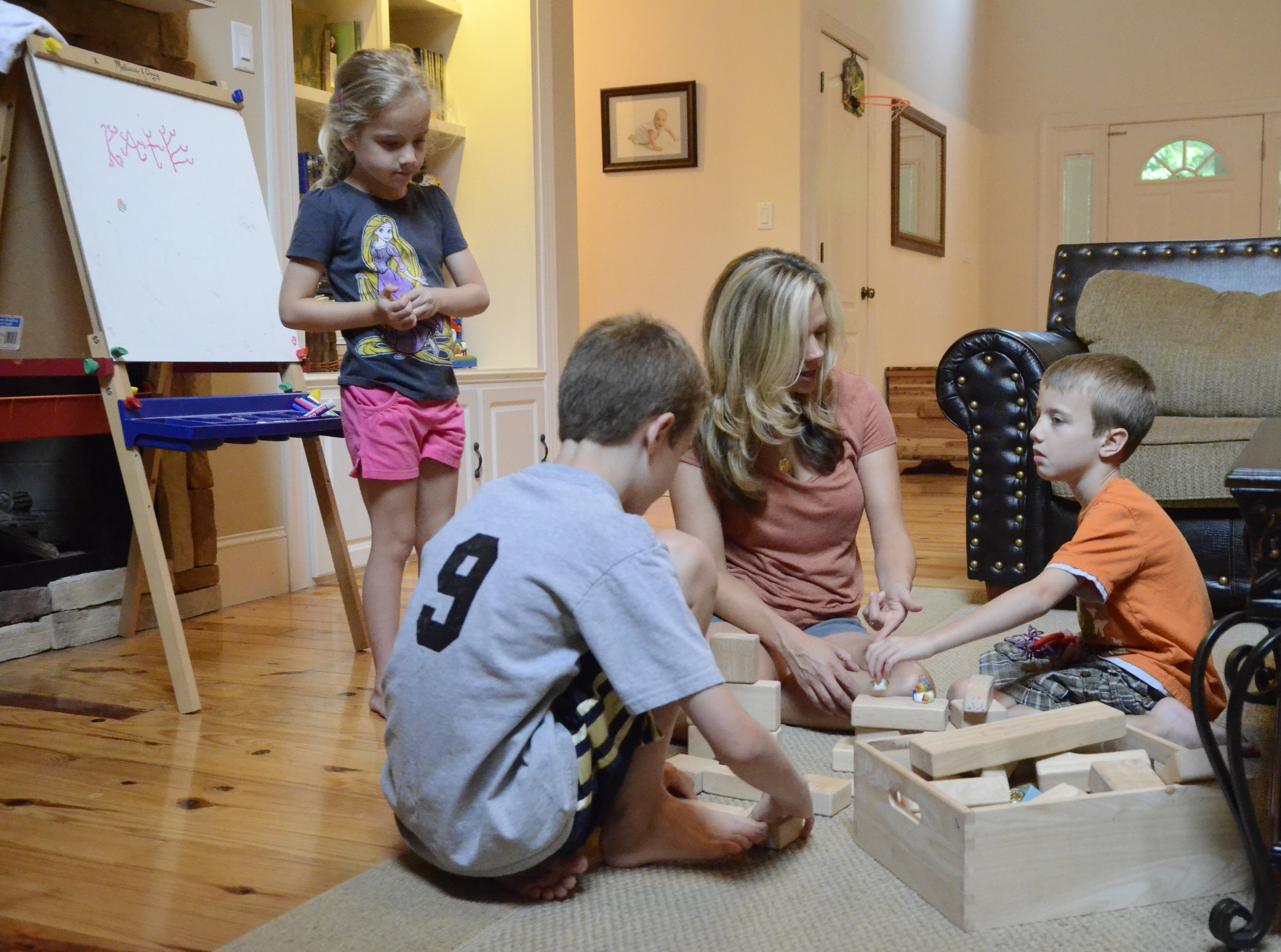Brainerd United Methodist Church helps parents of special need kids keep days structured during the summer
Friday, January 1, 1904
Charlie Post can't be occupied with common distractions like Angry Birds or Nickelodeon.
He needs one-on-one time, someone to sit close and pay attention.
Without such stimulation, the 7-year-old's world can fall apart. Left on his own, he can easily melt down into temper tantrums, sometimes running around the house opening and closing all the doors. He gets into things he shouldn't and can become obsessed with certain activities, like wanting to eat, or even run away.
Charlie has autism and his world doesn't work without structure.
So at school, a team of teachers and aides keeps him engaged and on task. Each day's schedule is laid out for him. There are pictures for recess, science and math so he knows exactly what to expect.
At home, his mom, Melissa, tries to keep him occupied with things like puzzles or games on an iPad. But that means she has to put everything else on hold and sit right there with him.
"He isn't able to just sit down and work on something on his own," Melissa Post said. "We don't do too well just sort of kicking it around the house."
So that means summer break isn't so much a celebrated time for rest and relaxation like it is for many other students, young and old. At summertime, Charlie can be thrown off balance.
The Hamilton County Schools system does offer some summer programs for students with special needs. But some parents say they often don't go far enough and aren't consistent enough for their children.
Now a new independent program has popped up at Brainerd United Methodist Church to help special-needs children like Charlie bridge the gap between May and August. Called REACH -- for Reinforcing Education and Charting Horizons -- the program is led by Emily Nasca, who also directs the church's preschool program and homeschool co-op for students with special needs. Parents say it's just another way the church is growing a reputation as a support center for families with special-needs students.
Aside from furthering their education and providing consistency, parents say the REACH program also offers them a break, because children with more profound disabilities often require near-round-the-clock attention. Most of the eight students in the program are nonverbal.
The program has a 2:1 teacher-student ratio. And the six-week program has students at school longer than what the public school system offers. At the church, students learn music, practice social skills, eat lunch, have recess and have guest speakers, like staff from the zoo. Because REACH is in its first year, Nasca said she had to close enrollment for the program. But families from across the region were clamoring to get in despite the $900 cost.
"I think for most parents, they're just looking for what's best for the child. So they're grateful because this is a continuum of care," Nasca said. "I think it's also a little bit of a respite for parents."
Melissa Post said the program is a benefit not only for Charlie but for the whole family. She has more time to spend with her two other typically developed children. They can go to restaurants, movies or other outings without taking Charlie's limitations with them. And she knows that he's safe and is continuing to learn.
"We really struggled last summer -- a lot of tears," his mother said. "This has been hopeful for us that we can survive the summer and have something really good for him. And I don't have to have the guilt of not doing for the other two."
The county has about 60 students in various summer special education programs, called Extended School Year. That's just a drop in the bucket compared to the more than 7,000 students who receive some kind of special education services in the school system.
The summer programs are for students who would regress too much over the long break or those who are on the verge of mastering a skill, like potty training or feeding themselves. But the families of many of those who qualify often decline the summertime programs, said Margaret Abernathy, the county's special education director.
Sometimes parents may want more intense services or programs for their children, but Abernathy said the department follows federal law in determining which programs to offer. And families aren't guaranteed to get the absolute best when it comes to special education services.
"We are obligated to provide what is educationally necessary," Abernathy said, "not necessarily the most beneficial."
While there are some nonprofit summer programs and camps out there for students with special needs, parent Lisa DeMars said it doesn't seem like there are enough options. Such children have very different needs, so not all programs will work.
Her 6-year-old son Charlie is in the REACH program. He was already attending the church's homeschool co-op two days a week during the school year. DeMars said she was drawn to the summer program because of its familiarity for her son. And teachers -- Hamilton County's own special education teachers -- are able to work with him on skills like socializing with other students that she just can't do on her own. Charlie has Down syndrome, but also social phobia and ADHD.
"It really helps me because I'm not a special education teacher," DeMars said. "They're using their skills to help him with the specific things he needs to work on."
The DeMars family is one of several with special-needs children that have found a home by joining Brainerd United Methodist. And they say the church's welcoming attitude is doing wonders for children like Charlie.
"Everything is in a place where he feels safe and comfortable," DeMars said. "They have gone above and beyond in accepting children with special needs and their families."
Contact staff writer Kevin Hardy at khardy@timesfree press.com or 423-757-6249.



